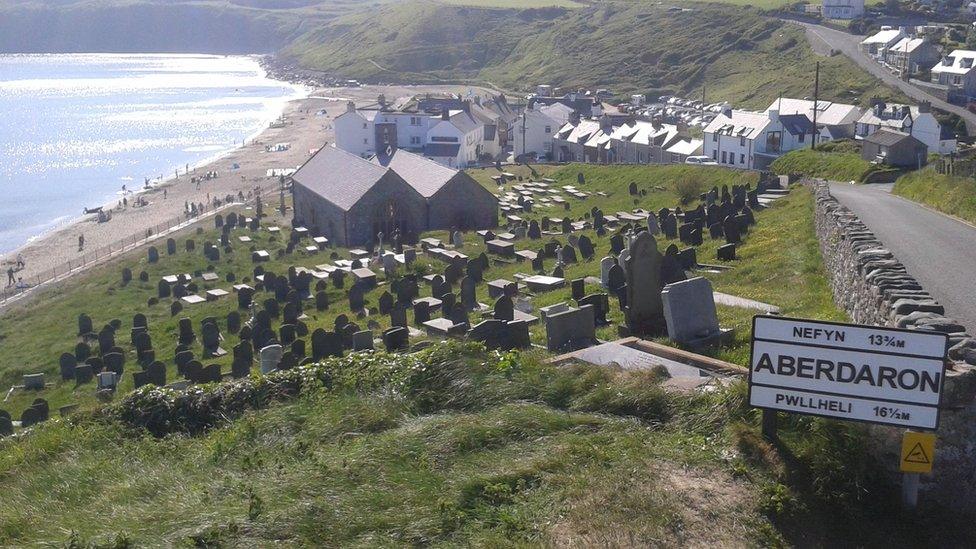Second homes in Wales: Pilot scheme planned to tackle 'crisis'
- Published
- comments
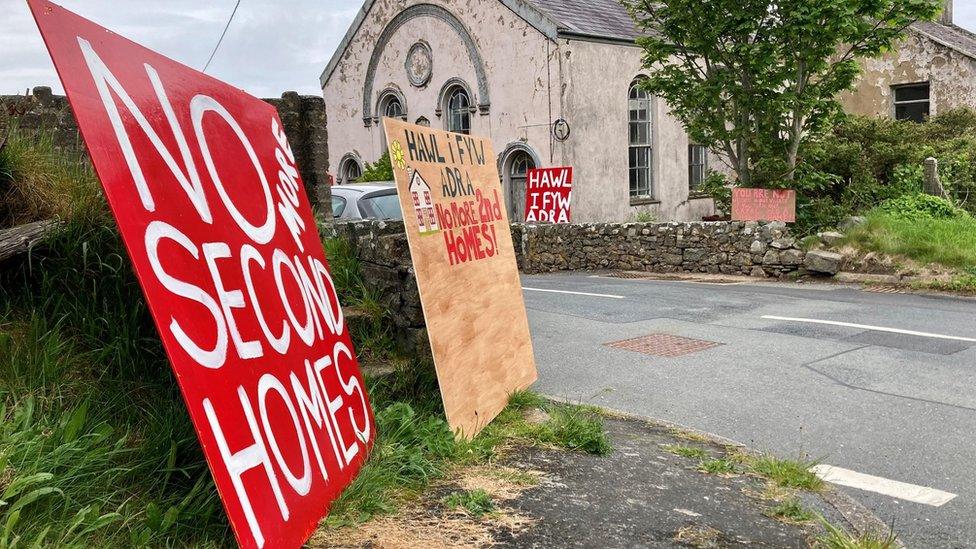
The second homes issue has sparked campaigns in Wales
Changes to local taxes, government house purchase schemes and planning laws could be introduced to tackle a second homes "crisis" in Wales.
The Welsh government will pick an area of Wales to pilot new policies in an attempt to "inject fairness back into the housing system".
Officials will also look at options to shut a tax "loophole" where some second home owners do not pay council tax.
But the plans were accused of being "weak" and "vague" by Plaid Cymru.
The Welsh Conservatives also questioned whether second homes were making areas unaffordable.
There were 24,873 second homes registered for council tax purposes in January 2021, according to official figures.
Officials say numbers of homes could be much higher depending on the exact definition of a second home.
Gwynedd has the highest number of second homes at 5,098, which represents 20% of all second homes in Wales.
There are 4,068 in Pembrokeshire, while Cardiff has 3,477, Anglesey 2,139 and 2,104 in Swansea.

'I'm being priced out'
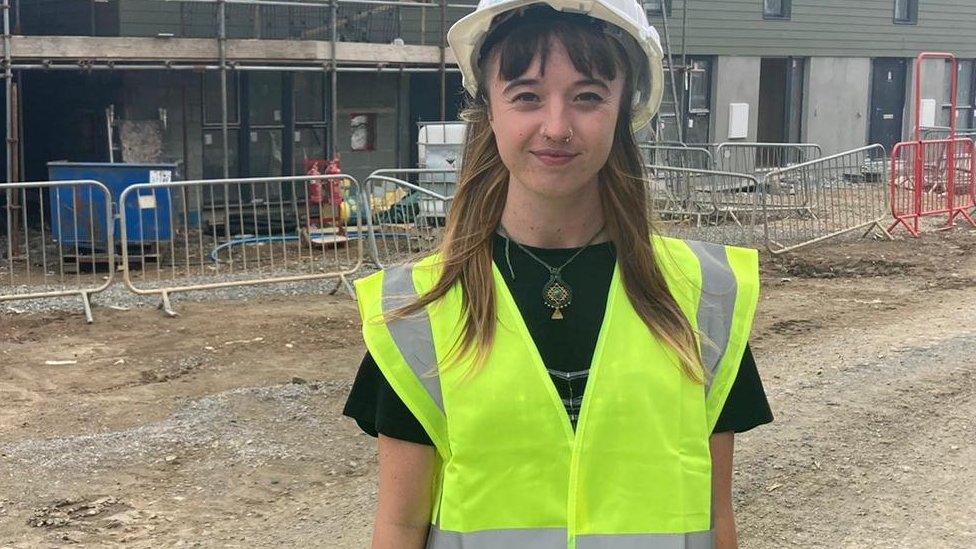
Rachel Kelway-Lewis would like to buy in Pembrokeshire, but is currently living in a caravan
Rachel Kelway-Lewis, 25, is among those finding it difficult to get on the housing ladder in Wales.
Originally from the village of Solva in Pembrokeshire, she is now living in a caravan she rents just outside St Davids.
"It's incredibly difficult" to get on the housing ladder in the area, the Carmarthenshire council worker said.
"Currently there's plots being sold for £350,000 alone... luxury developments, when so many local people can't afford to live in the area they've grown up in.
"I moved away for university and then I've come back to the area.
"I'd really like to buy locally and I work full-time, but unfortunately we're being priced out by second homeowners."

'Urgency and gravity'
Campaigners and politicians in west and north Wales have been calling on the government to act to tackle what they believe is a second homes crisis.
In response to a report on the issue, external by Dr Simon Brooks, of Swansea University, the Welsh government is promising "a summer of action which will determine how we tackle this issue now and into the future".
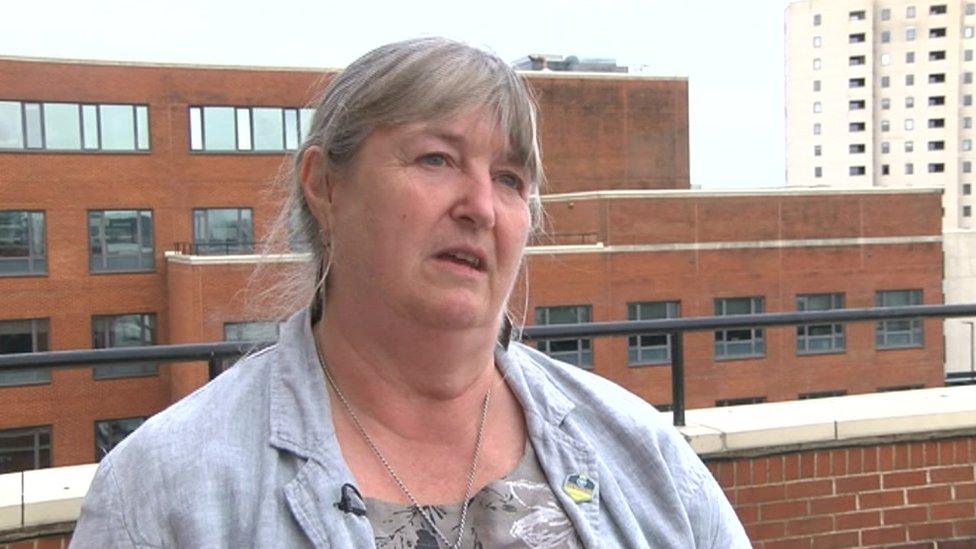
Housing Minister Julie James says "the urgency and gravity of this situation calls for further intervention"
Julie James, the climate change minister responsible for housing, said Wales was the only part of the UK to give councils the power to introduce a 100% council tax premium on second homes, but added "the urgency and gravity of this situation calls for further intervention".
The minister is proposing three solutions:
Addressing affordability and availability of housing
Introducing regulations, including planning and the introduction of a statutory registration scheme for holiday accommodation
Using national and local taxation systems to ensure second home owners "make a fair and effective contribution to the communities in which they buy"
Policy measures will be trialled and evaluated in a pilot area, which will be decided over the summer, before being considered for wider rollout.
A Welsh Language Community Housing Plan, to protect the particular interests of Welsh language communities, will be published for consultation in the autumn.
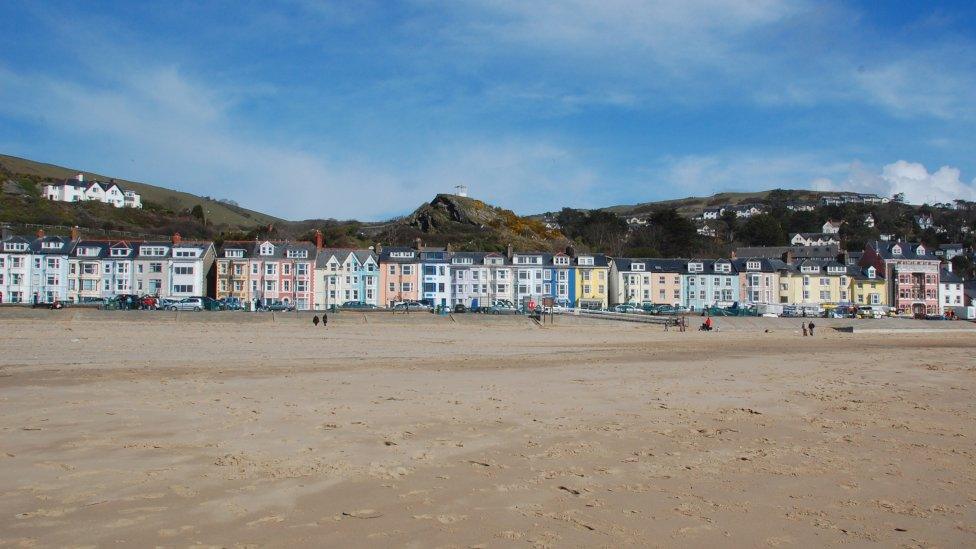
The Gwynedd council area has the highest number of second homes in Wales
"The continuing rise of house prices mean people, especially younger generations, can no longer afford to live in the communities they have grown up in," Ms James said.
"A high concentration of second homes or holiday lets can have a very detrimental impact on small communities, and in some areas could compromise the Welsh language being spoken at a community level."
'Little evidence'
But Welsh Conservative climate change spokeswoman Janet Finch-Saunders argued that while rising house prices mean people can no longer to afford to live in their home communities, "the minister has made a grave error by linking this to second homes". "The report by Dr Simon Brooks made important points, including that there is little evidence that second homes are the main cause of high house prices as opposed to buyers moving to reside there permanently."
She called for Ms James "to restore the Right-to-Buy in those crisis communities in Wales, reinvesting sale proceeds into more social housing and protecting homes from sale for 10 years".
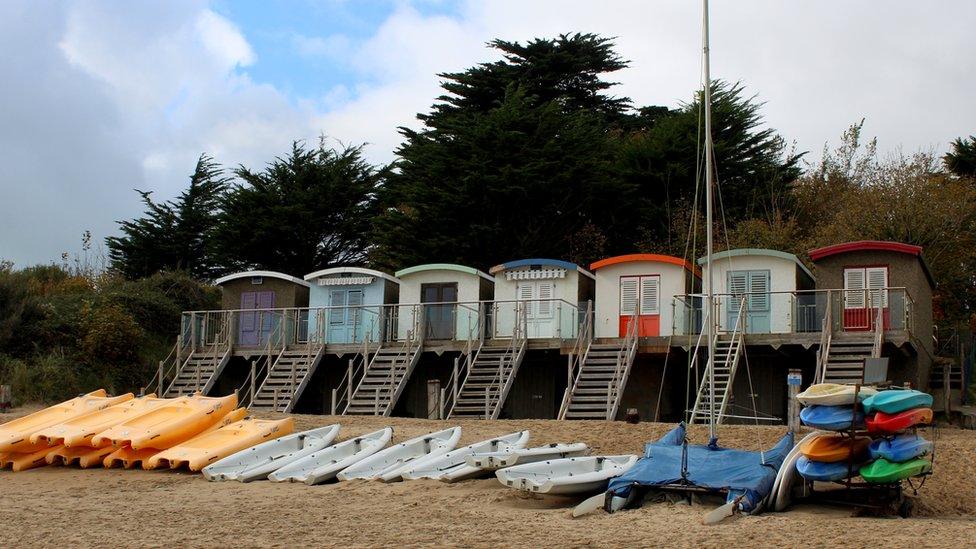
Even the beach huts in the village of Abersoch are hot property, with one selling for £153,000 in 2016
Mabon ap Gwynfor, housing spokesman for Plaid, said: "These weak measures will not be nearly enough to truly get to grips with a housing emergency that is fast engulfing our communities at an alarming rate.
"There is nothing here about closing the council tax loophole. There is nothing here about imposing caps on second homes. And there is nothing here about bringing numbers of holiday homes into community ownership through public intervention.
"In fact, there is no detail just vague plans for more consultation," he added.
Research by Gwynedd council suggests that over 60% of people in the area are priced out of their local communities, with second homes making up 11% of the county's housing stock.
Council leader Dyfrig Siencyn, a Plaid councillor, said: "Consultations and pilot schemes will not assist young people keen to get onto the housing ladder this year, it is therefore exasperating to see that no direct immediate action will be made to support people now."
Related topics
- Published29 May 2021
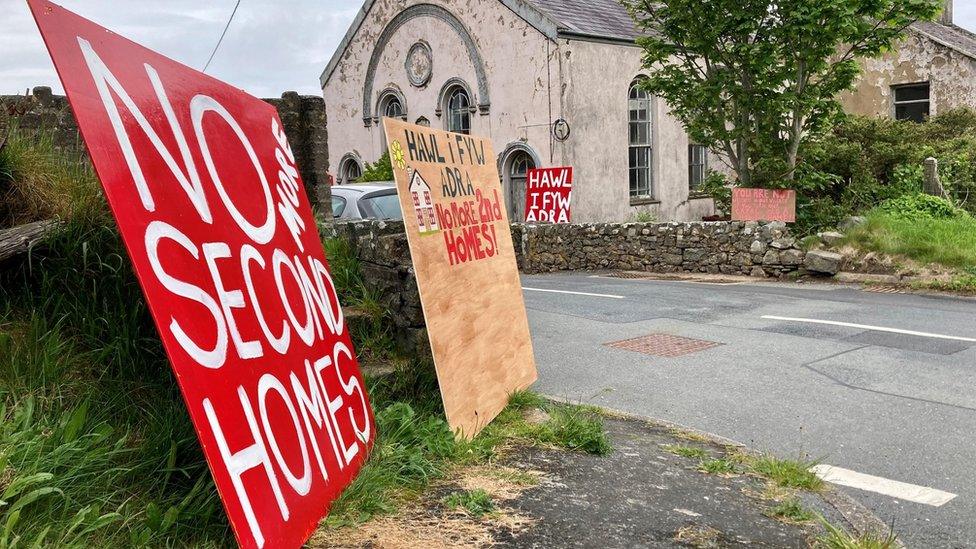
- Published22 May 2021
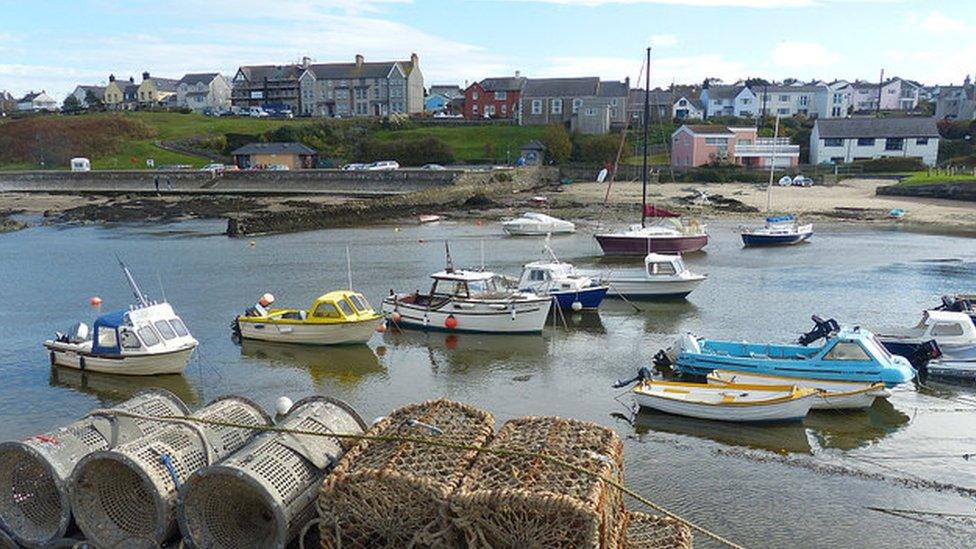
- Published30 April 2021
